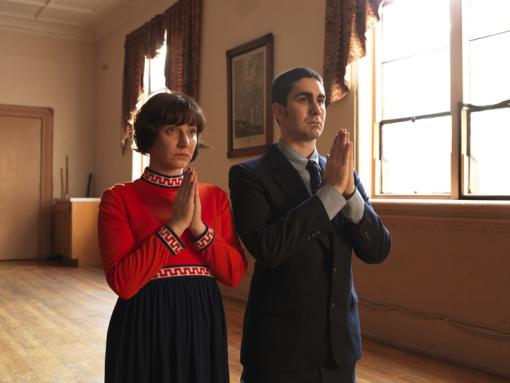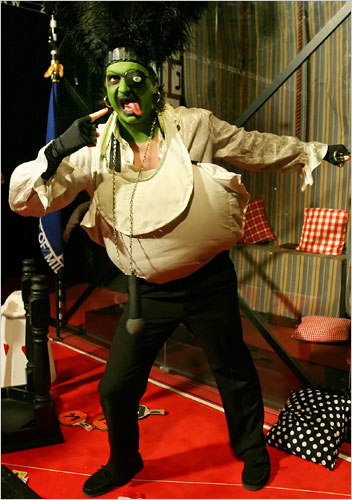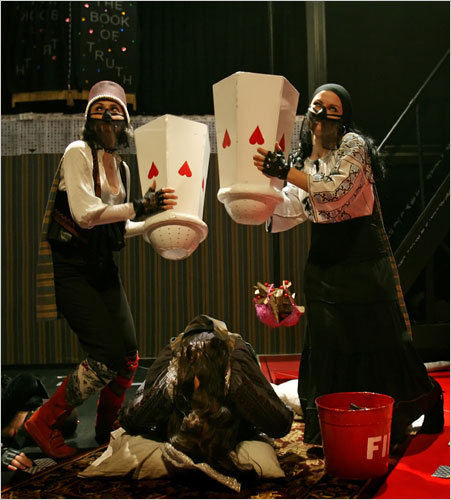I May Be a Douchebag (aka noise, criticism, and the New Music Gathering)
The New Music Gathering rolled into San Francisco this past weekend. Founded by Brooklyn stalwarts Danny Felsenfeld, Matt Marks, Lainie Fefferman, and Mary Kouyoumdjian, it was equal parts symposium, festival, and gab fest for composers, performers, and devotees of that amorphous non-genre we’re calling New Music.
The festival is, necessarily, a very large tent. In a field that’s always trying to expand its audience, it’s considered a bad idea to speak ill of another composer’s work, even if it’s not remotely to your aesthetic tastes. If we’re all struggling to get our music heard, we’re better off working together rather than tearing each other down. In the panel on new music criticism, Matt Marks said he could understand a beat writer slamming a piece of his, they’re required to review things even if they don’t like them. But if a blogger goes out of their way to write a bad review, well, in the words of journalist Joelle Zigman, that blogger is, in fact, a douchebag.
I’m not so sure. As someone who’s written quite a bit about pieces that I’ve found lacking, I’d like to think I’m not simply doing so as an exercise in douchebaggery. Rather, I’m doing my best to explore and understand the space. What is it about the piece that I’m finding lacking? What could have been different? Is it a failing of the artist? Is it a matter of taste? In the end, what do I value as a consumer of the arts, and where does this piece fall in the grand spectrum of things I’ve experienced. A thoughtful, honest, well considered response to a work can be a gift, even if it’s not an enthusiastic rave.
Case in point: there was quite a bit of music performed this weekend that I did not get at all. Many performances were noise explorations, without any of the traditional musical considerations of harmony, rhythm, or pulse, that left me alternating between boredom and annoyance. Based on my knowledge of the people who created it, and the people who seemed to genuinely enjoy it, I have to believe that there is truly some intellectual and/or aesthetic pleasure to be derived from this work, but it is entirely beyond me how to find it. It’s just not my bag.
I’ve been wrestling with why this is. Why is it that I’m perfectly happy watching long stretches of theater that defy any sort of rational comprehension (e.g. Richard Foreman), but if it’s sound exploration, I clock out at around 10 minutes? This weekend, while being confronted by the protracted drone of an electronically distorted minor second, I developed a pet theory: Maybe this is a function of my (oft maligned, yet occasionally insightful) Meyers-Briggs type, specifically my place on the S-N axis.
In Meyers-Briggs speak, a senser experiences the world more with their five senses and an intuit-er experiences the world through a layer of intellectual abstraction. I am ALLLLL the way over on the N side of things. I’m looking for patterns, for larger structures, for recurring themes and connections. Screw the tree, however lovely, and show me the damn forrest! Perhaps people who are ALLLLL the way over on the S side of things are better at reveling in the aural experience of the moment. They’re less concerned about the ‘where’ and ‘why’ and fascinated by the ‘what’. While I’m annoyed by not being able to find any structure or meaning in a sustained minor second, the senser is digging the experience of a shifting, gritty dissonance just sitting there.
This may be completely reductive, but it’s all I got right now. I’d need to hear more from folks who really dig the whole noise exploration side of the new music world. I’m all for keeping a large tent, let’s leave room for the extremes, but I think it’s telling that my favorite piece of the weekend, Samuel Carl Adams’s Shade Studies, sat right in the middle of the S-N axis. Relatively conventional harmonies satisfy the intuit-ers desire for structure, while the sustained, shimmering resonances allow the senser to bask in the layers of overtones that the harmonies created. That’s the kind of work that gets me excited, interested, engaged, and, ultimately, makes me want to create work of my own.


